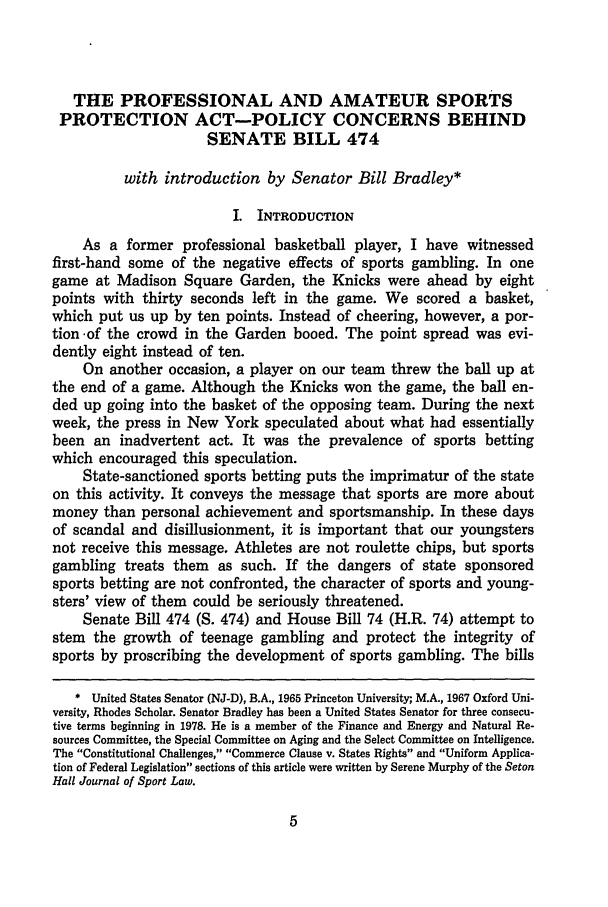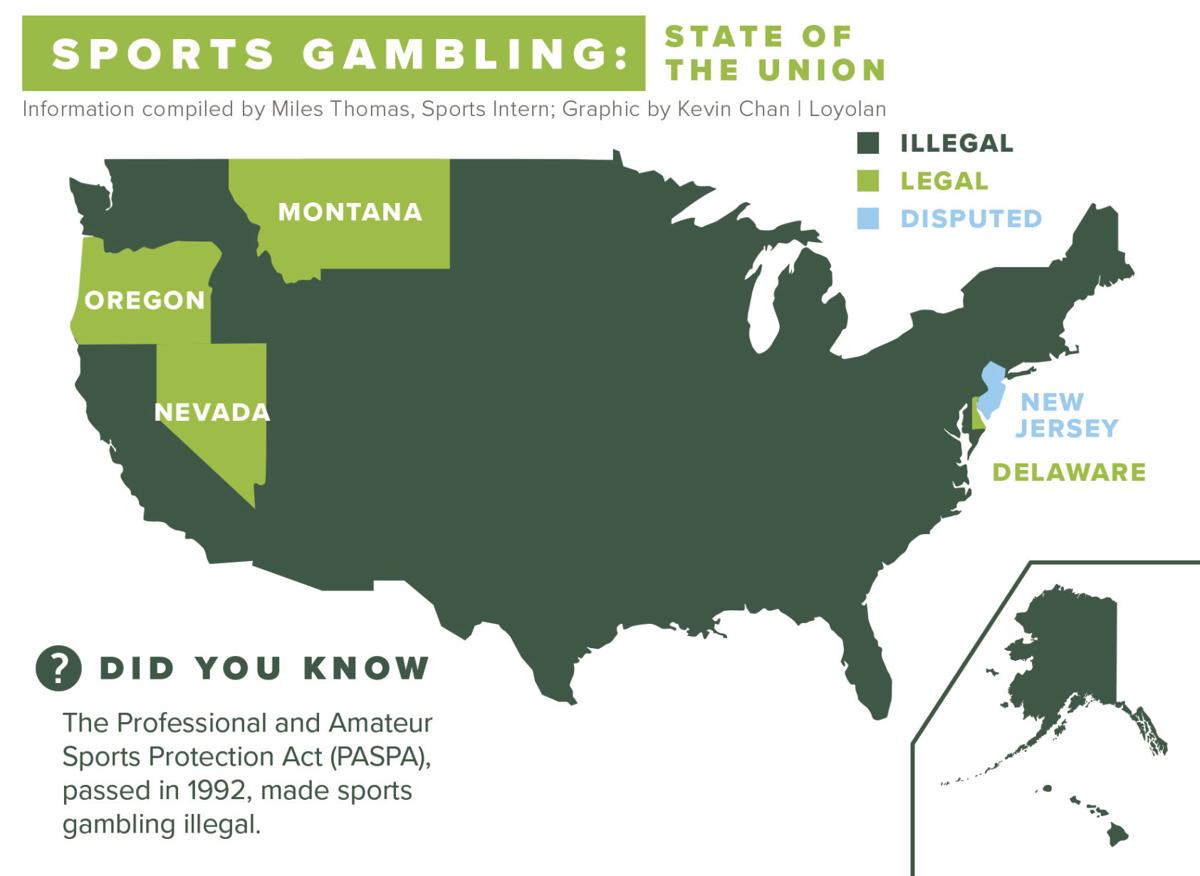Professional And Amateur Sports Protection Act
S.474 - Professional and Amateur Sports Protection Act 102nd Congress (1991-1992). The Professional and Amateur Sports Protection Act of 1992 (PASPA), also referred to as the Bradley Act, was a federal law with the aim of defining the legality of sports wagering in the US. PASPA itself did not explicitly outlaw sports wagering.
- The Professional and Amateur Sports Protection Act was highly unusual: It did not ban sports gambling nationwide as a matter of federal law, but it said the states were not allowed to permit it.
- A civil action to enjoin a violation of section 3702 may be commenced in an appropriate district court of the United States by the Attorney General of the United States, or by a professional sports organization or amateur sports organization whose competitive game is alleged to be the basis of such violation.


Executive Summary
Sports betting has always been popular in America. However, various concerns, especially its potential to corrupt sports through game-fixing, led many states to ban most forms of sports betting. In 1992, Congress passed the Professional and Amateur Sports Protection Act (PASPA), which prohibited most states from legalizing sports betting. The only state that continues to permit a wide range of legalized sports betting is Nevada.
Recent polling found that 62 percent of Americans cannot accurately say whether or not sports betting is legal in the state that they live in. With the exception of daily fantasy sports laws in a handful of states, and animal racing, which is allowed in many states, single-game sports betting is illegal in every state except Nevada.
A separate poll found that 30 percent of Americans say they have bet on sports. Estimates suggest about $155 billion is bet on sports in America each year—97 percent of it illegally. Meanwhile, by driving the betting market underground PASPA has increased the liquidity of the illegal betting market, making it easier for criminals to place bets on games they have sought to fix and more difficult to identify those bets or the criminals who make them.


Removal of PASPA’s prohibition on legalization of sports betting would have many advantages. It would result in economic growth, create new jobs, and provide additional tax revenue to states. A recent estimate found that if sports betting were legalized nationwide, GDP would increase by $11.6 billion to $14.2 billion, 125,000 to 152,000 additional jobs would be created, and tax revenues spread across state, federal and local municipalities would rise by $4.8 billion to $5.3 billion.
Sports fans, leagues and associations would benefit. Research shows that fans are more engaged when they bet on sports. That would translate into higher viewership and other forms of participation. Being able to bet legally in a well-regulated market also provides fans with greater assurance that they will be paid if their bet wins. And in well-regulated legal markets, such as those in the U.K. and Australia, sports betting companies offer consumers ways to manage their betting in order to reduce compulsive gambling. (Many U.S. casinos already do this for other forms of gaming.)
The Professional And Amateur Sports Protection Act
The likelihood of game-fixing would be further reduced, thereby enhancing the integrity of the games fan love and watch. By converting activity that currently occurs in underground and offshore markets into legitimate, well-regulated local economic activity, legalization would create a large, highly liquid and transparent legal market in the U.S. This would enable sports leagues and associations to work with sportsbooks and law enforcement to identify instances of game-fixing—as happens in other countries with legalized sports betting. (U.S. sports leagues and associations already use data generated by independent companies to identify betting irregularities that could potentially indicate instances of game-fixing.) And by reducing the liquidity of the illegal market, legalization would make it more difficult for criminals to profit from game-fixing by placing bets in underground markets.
Professional And Amateur Sports Protection Act Of 1992
Over 60 percent of Americans think sports betting should be legal and 70 percent believe it should be regulated by states, not the federal government. Legislatures in several U.S. states have already begun the process of legalizing sports betting. And in a 2011 referendum the citizens of New Jersey voted to legalize sports betting in the state. By prohibiting states from legalizing sports betting, PASPA arguably exceeds the federal government’s constitutional authority, effectively commandeering states to pursue its bidding against the will of the people.